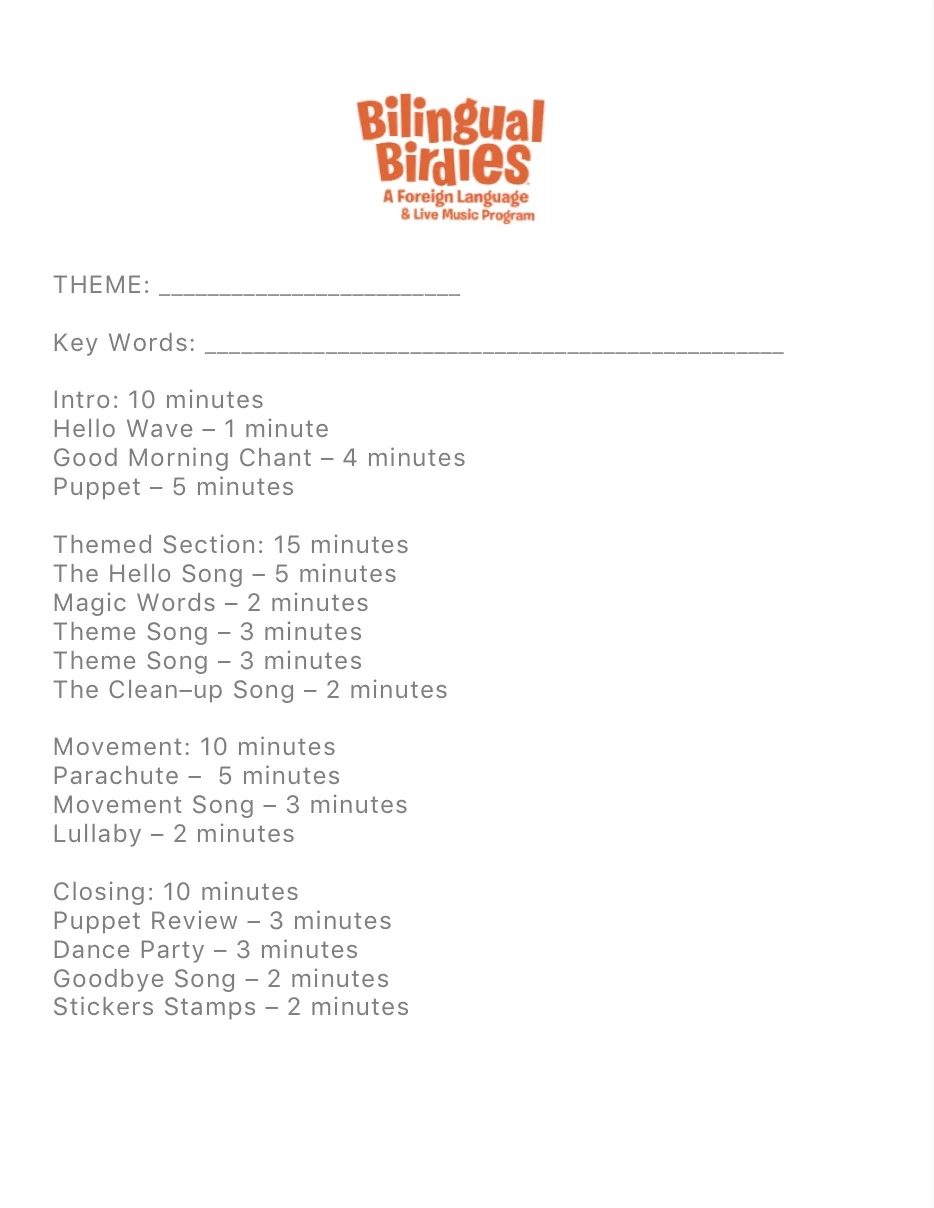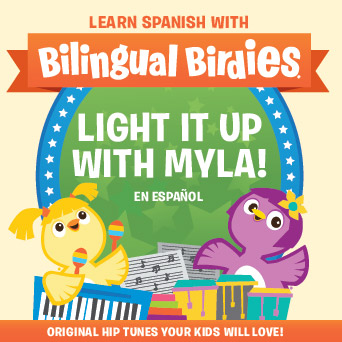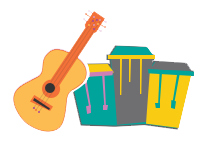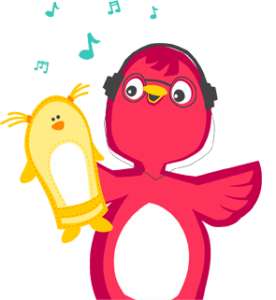Fruits Spanish agendas
Frutas


KEYWORDS: fresitas (strawberries), tengo hambre (I’m hungry), uno (one), dos (two), tres (three), cuatro (four), cinco (five), seis (six), siete (seven), ocho (eight), nueve (nine), diez (ten), ahora (now), basta (enough), manzana (apple), aguacate (avocado), naranja (orange), pera (pear), ciruela (plum), plátano/banano (banana), limón (lemon), comer (to eat)
INTRO:
- Hola Wave (Hello Wave)
- Buenos Días Chant (Good Morning Chant)
- Puppet: Myla Tiene Hambre (Myla Is Hungry)
THEMED SECTION:
- Hola Song (Hello Song)
- Magic Words: Ahora / Basta (Now / Enough)
- Ensalada de Frutas (Fruit Salad)
- Manzanas y Bananos (Apples And Bananas)
- Hora de Limpiar (Clean-up Song)
MOVEMENT:
- Parachute
- Fresitas (Strawberries)
- Ahora Vamos Cantar (We Are Going To Sing)
LULLABY:
- Lullaby: Escucha (Listen)
CONCLUSION
- Review: manzana (apple), comer (eat)
- Dance Party
- Adiós Amigos (Goodbye Friends)
- Stickers / Stamps



 Download the Light It Up With Myla music album to complete your training:
Download the Light It Up With Myla music album to complete your training:


